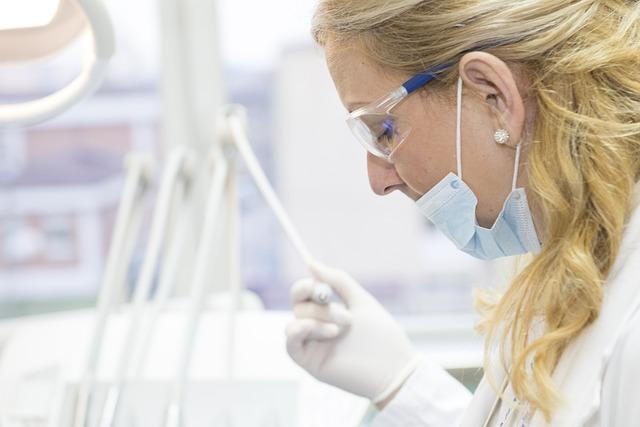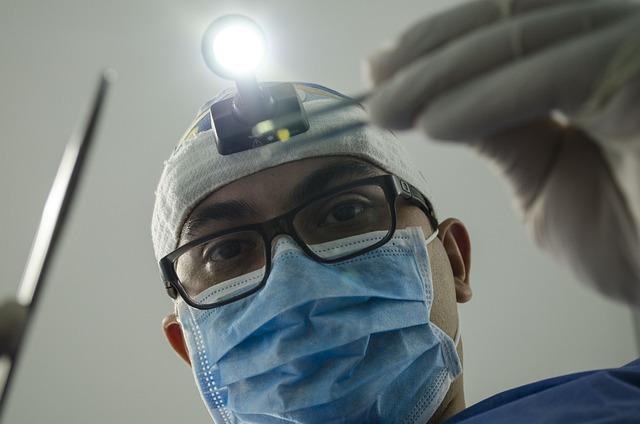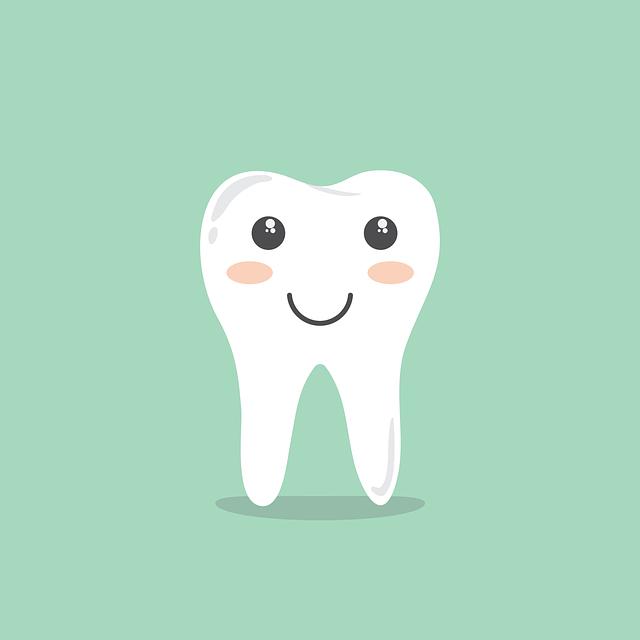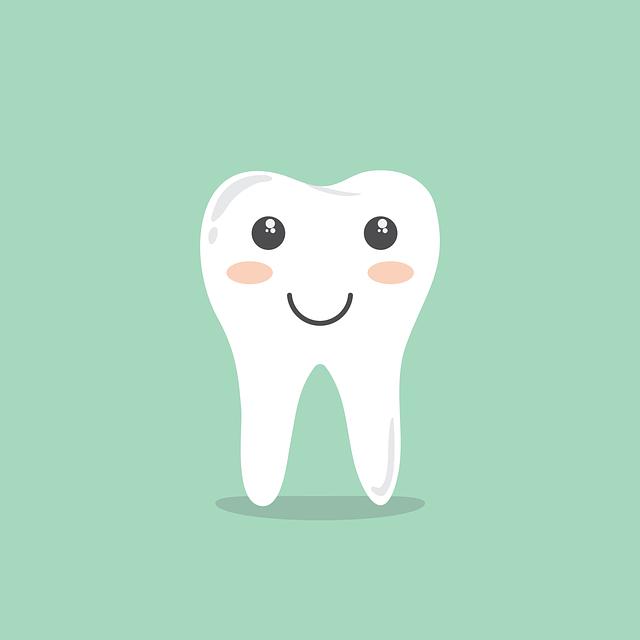Can I Eat Salt After Wisdom Teeth Removal? Dietary Do’s and Don’ts
After undergoing the removal of your wisdom teeth, it’s natural to wonder about the dos and don’ts of your post-surgery diet. One particular query that often arises is whether it’s safe to consume salt during the recovery period. Fret not, for we are here to provide you with confident, knowledgeable, and neutral advice on the matter. In this article, we will shed light on the topic, ensuring that you have a clear understanding of whether salt should be included or excluded from your post-wisdom teeth removal diet. So, let’s embark on this journey together, exploring the dietary do’s and don’ts after wisdom teeth removal.
1. The Vital Role of Diet After Wisdom Teeth Extraction: What to Eat and Avoid
The Vital Role of Diet After Wisdom Teeth Extraction
After wisdom teeth extraction, it is crucial to follow a proper diet that aids in recovery and prevents complications. Consuming the right foods can help reduce swelling, promote healing, and prevent infection. On the other hand, certain foods can hinder the healing process and should be avoided.
What to Eat:
- Soft foods: Opt for mashed potatoes, yogurt, smoothies, and soups. These foods are easy to consume and do not require much chewing, reducing the risk of irritating the extraction site.
- Protein-rich foods: Include eggs, tofu, Greek yogurt, and soft meats in your diet. Protein aids in tissue repair and promotes faster healing.
- Vitamin-rich foods: Incorporate fruits and vegetables into your meals, specifically those high in vitamin C. These nutrients bolster your immune system and promote tissue regeneration.
- Hydrating fluids: Drink plenty of water and clear liquids to prevent dehydration and promote overall well-being.
What to Avoid:
- Hard or crunchy foods: Stay away from nuts, chips, and popcorn, as these can easily get lodged in the extraction site and cause irritation or infection.
- Hot foods and beverages: Avoid consuming anything too hot, as it can disrupt the healing process and lead to complications.
- Acidic or spicy foods: These can irritate the extraction site and delay healing. It’s best to avoid citrus fruits, spicy sauces, and vinegar-based dressings.
- Alcohol and tobacco: Both alcohol and tobacco can interfere with the healing process and increase the risk of complications. It’s crucial to avoid them entirely during recovery.
By adhering to a proper post-extraction diet, you can ensure a smoother recovery and minimize discomfort. Remember to consult your dentist or oral surgeon for specific dietary recommendations tailored to your individual needs.

2. Navigating Post-Operative Nutrition: A Comprehensive Guide for Optimal Healing
Proper nutrition plays a crucial role in the healing process after a surgical procedure. This comprehensive guide aims to help you navigate the post-operative period, providing you with valuable insights and recommendations for optimal healing.
1. Prioritize Protein Intake: Protein is the building block for tissue repair and wound healing. Ensure you’re consuming adequate amounts of lean meats, poultry, fish, eggs, dairy products, and plant-based protein sources like legumes and tofu. Incorporate protein-rich foods into each meal to promote faster recovery.
2. Stay Hydrated: Hydration is key for the body’s overall well-being and healing. Make sure to drink plenty of water throughout the day. Aim for at least 8-10 glasses of water daily. Avoid sugary beverages and opt for herbal teas, infused waters, or low-sodium broths to keep yourself hydrated.
3. Include Nutrient-Dense Foods: Fill your plate with a variety of colorful fruits and vegetables that are rich in vitamins, minerals, and antioxidants. These nutrients aid in reducing inflammation, boosting the immune system, and promoting tissue repair. Incorporate leafy greens, berries, citrus fruits, and cruciferous vegetables into your meals.
4. Incorporate Healthy Fats: Don’t shy away from healthy fats, as they play a crucial role in the body’s healing process. Opt for sources like avocados, nuts, seeds, olive oil, and fatty fish. These fats provide essential nutrients, such as omega-3 fatty acids, which have anti-inflammatory properties.
5. Mindful Eating: Take the time to eat slowly and mindfully, chewing your food thoroughly. This aids digestion and allows your body to absorb nutrients more efficiently. Avoid overeating and opt for smaller, frequent meals throughout the day to maintain a steady energy level and support the healing process.
Remember, consulting with your healthcare provider or a registered dietitian is crucial to tailor your post-operative nutrition plan according to your specific needs and medical history. Following these guidelines will promote optimal healing and help you on your journey to a speedy recovery.

3. The Impact of Salt Consumption on Healing: Debunking Common Myths
The impact of salt consumption on healing is a topic that has been surrounded by various myths and misconceptions. In order to separate fact from fiction, let’s debunk some of the most common myths:
- Myth 1: Consuming more salt speeds up the healing process.
- Fact: While salt is an essential nutrient, consuming excessive amounts can actually hinder the healing process. High salt intake can lead to fluid retention and increased blood pressure, which may impede proper circulation and slow down healing.
- Myth 2: Salt can prevent infection and promote wound healing.
- Fact: While salt has some antimicrobial properties, it is not a reliable method for preventing infections or promoting wound healing. Proper wound care, such as cleaning and disinfection, along with medical advice, is essential for preventing infections and facilitating healing.
- Myth 3: Increasing salt intake can alleviate pain during the healing process.
- Fact: There is no scientific evidence to support the claim that consuming more salt can alleviate pain during the healing process. Pain management should be addressed through appropriate medical interventions and medications, as advised by healthcare professionals.
By debunking these common myths, it becomes clear that salt consumption does not play a significant role in enhancing the healing process. It’s important to prioritize a balanced diet, proper wound care, and following medical advice for optimal healing outcomes.
4. Expert Insights: Can I Consume Salt After Wisdom Teeth Removal?
After wisdom teeth removal, it is essential to follow certain dietary guidelines to ensure a smooth recovery. One common concern is whether it is safe to consume salt during this period. Here are some expert insights to provide you with a clear understanding:
1. Limit salt intake: While it is generally advisable to limit salt intake for overall health, it becomes even more crucial after wisdom teeth removal. Excessive salt consumption can lead to inflammation and hinder the healing process. Therefore, it is recommended to keep your salt intake to a minimum during the recovery period.
2. Saltwater rinses: Saltwater rinses can actually be beneficial after wisdom teeth removal. They help to reduce swelling, alleviate discomfort, and aid in preventing infection. To make a saltwater rinse, dissolve half a teaspoon of salt in eight ounces of warm water. Gently swish the solution in your mouth for about 30 seconds and then spit it out. Repeat this process a few times a day, but be careful not to swallow the mixture.
3. Consult your dentist: Each person’s recovery process may vary, so it is always best to consult your dentist or oral surgeon for personalized advice. They can evaluate your specific situation and provide recommendations tailored to your needs. Following their guidance will ensure a smooth recovery and minimize any potential complications.
5. The Importance of a Balanced Diet: Essential Nutrients for a Speedy Recovery
When it comes to recovering from an illness or injury, a balanced diet plays a crucial role in ensuring a speedy recovery. Your body needs a variety of essential nutrients to heal and regain strength. Here are some key nutrients that should be included in your diet:
- Protein: Protein is essential for repairing tissues and building new cells. Include lean meats, fish, eggs, dairy products, and plant-based protein sources like beans and lentils in your meals.
- Vitamins and minerals: These micronutrients are vital for supporting your immune system and aiding in the healing process. Focus on consuming a wide range of fruits, vegetables, whole grains, and nuts to obtain a variety of vitamins and minerals.
- Healthy fats: Incorporating sources of healthy fats, such as avocados, nuts, seeds, and olive oil, can help reduce inflammation and promote healing.
- Complex carbohydrates: Opt for whole grains, legumes, and starchy vegetables to provide your body with sustained energy and essential nutrients.
Remember, maintaining a balanced diet is not just important during recovery but should also be a part of your overall lifestyle to support optimal health. Consult with a healthcare professional or a registered dietitian to create a personalized meal plan that meets your specific needs.
6. Mindful Choices: Foods to Include in Your Post-Extraction Meal Plan
When it comes to choosing the right foods for your post-extraction meal plan, it’s important to make mindful choices that promote healing and minimize discomfort. Here are some foods that you should include in your diet to aid in the recovery process:
- Soft and Pureed Foods: Opt for easily digestible foods such as yogurt, mashed potatoes, scrambled eggs, and smoothies. These will provide essential nutrients without putting strain on your healing gums.
- Protein-Rich Foods: Incorporate protein into your meals to support tissue repair and promote faster healing. Examples include soft-cooked chicken, fish, tofu, and lentils.
- Vitamin C-Rich Foods: Vitamin C plays a crucial role in collagen formation, which aids in wound healing. Include foods like citrus fruits, bell peppers, strawberries, and broccoli in your post-extraction meal plan.
- Hydrating Foods and Beverages: Staying hydrated is vital for a smooth recovery. Consume water-rich foods like soups, smoothies, and fruits, and remember to drink plenty of water throughout the day.
- Anti-inflammatory Foods: To minimize swelling and discomfort, incorporate foods with anti-inflammatory properties into your diet. Examples include ginger, turmeric, green leafy vegetables, and fatty fish like salmon.
By making mindful choices and including these foods in your post-extraction meal plan, you can ensure a smoother and more comfortable recovery process. Remember to consult with your dentist or oral surgeon for specific dietary recommendations based on your unique situation.
7. Beware the Hidden Sodium: Surprising Sources of Salt in Your Diet
In order to maintain a healthy diet, it’s crucial to be aware of the hidden sodium lurking in our daily meals. While we may be cautious about adding salt to our dishes, there are several surprising sources of sodium that can contribute to an excessive intake without even realizing it.
Processed and packaged foods are often the main culprits when it comes to hidden sodium. Foods such as canned soups, frozen meals, and pre-packaged snacks can contain alarmingly high levels of salt. It’s essential to carefully read food labels and pay attention to the sodium content listed. Look for products labeled “low-sodium” or “no added salt” as healthier alternatives.
Additionally, condiments and sauces can be sneaky sodium sources. Ketchup, soy sauce, and salad dressings are notorious for their high sodium content. Opting for low-sodium or homemade versions of these condiments can help reduce your overall sodium intake. It’s also important to be mindful of portion sizes, as even small amounts of these condiments can add up quickly.
- Hidden sodium is commonly found in:
- Canned soups and broths
- Processed meats like bacon and deli meats
- Cheeses and other dairy products
- Bread and baked goods
By being vigilant about the hidden sources of sodium in our diet and making informed choices, we can take control of our health and reduce the risks associated with excessive sodium intake.
8. The Case for Moderation: Understanding the Right Amount of Salt After Surgery
Salt is an essential component of our diet, providing flavor and aiding in various bodily functions. However, after undergoing surgery, it becomes crucial to find the right balance when it comes to salt intake. While some may think that cutting out salt entirely is the best approach, moderation is key to maintaining a healthy recovery.
Here are some important factors to consider when understanding the right amount of salt after surgery:
- Fluid Retention: Consuming excessive amounts of salt can lead to fluid retention, which may increase swelling and put additional strain on the body during the healing process. It is important to limit sodium intake to prevent this issue.
- Electrolyte Balance: Salt contains sodium, an electrolyte that plays a vital role in maintaining proper nerve and muscle function. However, an imbalance in electrolytes can cause complications. Consult with your healthcare provider to determine the optimal sodium levels for your specific condition.
- Wound Healing: A high-sodium diet can impede wound healing by affecting blood flow and impairing the body’s ability to fight infections. Moderating salt intake can help promote a faster and more efficient recovery.
Remember, moderation is key. By monitoring your salt intake and consulting with your healthcare team, you can ensure that you strike the right balance and support your body’s healing process after surgery.
9. Avoiding Dietary Pitfalls: Salt-Related Complications to Watch Out For
When it comes to maintaining a healthy diet, it’s important to be mindful of the amount of salt we consume. Excessive salt intake can lead to various complications that can have a negative impact on our overall health. By being aware of these salt-related pitfalls, we can make informed choices and better protect our well-being.
Here are some salt-related complications to watch out for:
- High blood pressure: Consuming too much salt can cause our blood pressure to rise, increasing the risk of cardiovascular problems. It’s advisable to limit sodium intake to less than 2,300 milligrams per day.
- Fluid retention: Excessive salt consumption can lead to fluid retention in our bodies, causing swelling in the legs, feet, and other areas. Reducing sodium intake can help alleviate this condition.
- Kidney problems: An excessive intake of salt can put a strain on our kidneys, potentially leading to kidney stones or even kidney disease. It’s essential to drink plenty of water and maintain a balanced diet to support kidney health.
By being aware of these potential salt-related complications, we can make conscious choices to reduce our salt intake and prioritize our health. Remember, moderation is key, and a well-balanced diet is crucial for overall well-being.
10. Expert Recommendations: Guidelines for Salt Consumption During the Recovery Period
During the recovery period, it is important to be mindful of your salt consumption in order to promote healing and prevent complications. Here are some expert recommendations and guidelines to follow:
- Limit your daily salt intake: It is generally recommended to consume no more than 2,300 milligrams (mg) of sodium per day. However, during the recovery period, it may be beneficial to reduce your intake even further, aiming for 1,500 mg or less.
- Avoid processed and packaged foods: These types of foods often contain high amounts of sodium. Opt for fresh, whole foods instead, such as fruits, vegetables, lean proteins, and whole grains.
- Read food labels: Pay close attention to the sodium content listed on food labels. Choose low-sodium or sodium-free options whenever possible.
- Season with herbs and spices: Instead of relying on salt for flavor, experiment with different herbs and spices to enhance the taste of your meals. This can help reduce your salt intake while still enjoying delicious flavors.
- Cook at home: By preparing your own meals, you have control over the amount of salt added to your dishes. Be mindful of using salt substitutes or alternative seasonings to add flavor without increasing sodium levels.
Following these expert recommendations for salt consumption during the recovery period can contribute to a healthier healing process and improve your overall well-being. Remember to consult with your healthcare provider for personalized guidance based on your specific health condition and needs.
Frequently Asked Questions
Q: Can I eat salt after wisdom teeth removal?
A: It is generally recommended to avoid consuming salt immediately after wisdom teeth removal. Salt can irritate the surgical site and delay the healing process.
Q: Can I eat any type of salt?
A: It is best to avoid all types of salt, including table salt, sea salt, and Himalayan salt, during the initial recovery period after wisdom teeth removal.
Q: How long should I wait before consuming salt?
A: It is advisable to wait at least a week before adding salt back into your diet after wisdom teeth removal. However, it is always best to consult with your dentist or oral surgeon for specific instructions tailored to your individual case.
Q: Are there any dietary do’s and don’ts after wisdom teeth removal?
A: Yes, there are several dietary guidelines to follow for a smooth recovery. It is recommended to stick to soft foods that are easy to chew and swallow, such as mashed potatoes, yogurt, and soup. Avoid hard, crunchy, or sticky foods that can potentially disrupt the surgical site or cause discomfort.
Q: Why is it important to avoid salt after wisdom teeth removal?
A: Salt can cause irritation and inflammation at the surgical site, hindering the healing process. Additionally, consuming salty foods can increase the risk of dry socket, a painful condition that occurs when the blood clot at the extraction site becomes dislodged or dissolves prematurely.
Q: Can I use saltwater rinses for oral hygiene?
A: Saltwater rinses can actually be beneficial for oral hygiene after wisdom teeth removal. Dilute half a teaspoon of salt in eight ounces of warm water and gently rinse your mouth with this solution after meals. However, be cautious not to swallow the mixture, as it can still cause irritation if ingested.
Q: When can I reintroduce salt into my diet?
A: It is generally safe to reintroduce salt into your diet after the initial recovery period, which usually lasts about a week. However, it is crucial to listen to your body and gradually reintroduce salty foods, ensuring they do not cause any discomfort or irritation.
Q: Are there any other dietary restrictions I should be aware of?
A: In addition to avoiding salt, you should also avoid consuming hot and spicy foods, carbonated beverages, alcohol, and using straws during the first few days after wisdom teeth removal. These can all potentially disrupt the healing process or cause complications.
Q: How can I ensure a smooth recovery after wisdom teeth removal?
A: Following your dentist’s or oral surgeon’s instructions is crucial for a successful recovery. In addition to following dietary guidelines, it is important to maintain proper oral hygiene by gently brushing your teeth and rinsing your mouth with a saltwater solution. Avoid excessive physical activity and get plenty of rest to aid the healing process. If you experience severe pain, bleeding, or any unusual symptoms, contact your dentist or oral surgeon immediately.
Key Takeaways
In conclusion, it is essential to follow certain dietary guidelines after wisdom teeth removal to promote healing and minimize discomfort. While it is generally recommended to avoid consuming too much salt during the recovery period, a moderate amount can be included in your diet. Remember to prioritize soft and nutritious foods, such as soups, smoothies, and mashed vegetables, to support the healing process. Stay hydrated, maintain good oral hygiene, and consult your dentist or oral surgeon for any specific dietary restrictions or concerns. By adhering to these guidelines, you can ensure a smooth recovery and get back to enjoying your favorite meals in no time.






